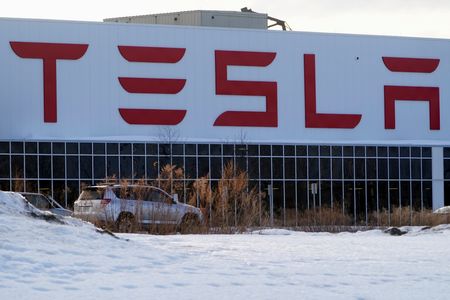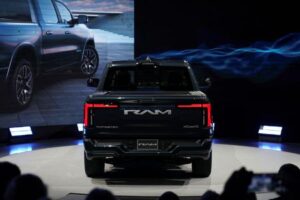(Reuters) -Tesla will lay off 285 employees in Buffalo, New York, as part of its plans to trim 10% of its global workforce, the electric-vehicle maker said in a legally mandated notice on Wednesday.
Under pressure from falling sales and an intensifying price war for EVs, Tesla announced its latest round of jobs cuts on Monday in an internal memo that was seen by Reuters.
The notice on Wednesday was issued under the Worker Adjustment and Retraining Notification (WARN) Act which requires employers to provide a 60-day notice before layoffs.
It said the layoffs would start on July 15 and that they were due to “economic” reasons. Tesla has a total of 2,032 employees across the two impacted sites in Buffalo, meaning that the cuts will affect about 14% of its workers there.
The plants in upstate New York were built to produce solar roof tiles. Tesla also makes fast-charging equipment at the location, which hosts staff that label data for its Autopilot driver-assistance technology and is set to be the home of its Dojo supercomputer project.
The EV maker had in February last year let go 4% of the employees in the Autopilot labeling team in Buffalo as part of a performance review cycle conducted every six months.
The move had come just a day after the workers launched a campaign to form a union, but Tesla had said the affected staff were identified before the union campaign was announced.
Musk last announced a big round of job cuts in 2022, after telling executives he had a “super bad feeling” about the economy. Still, Tesla’s headcount has risen from around 100,000 in late 2021 to over 140,000 in late 2023, according to filings with U.S. regulators.
The layoffs follow an exclusive Reuters report on April 5 that Tesla had canceled a long-promised inexpensive car, expected to cost $25,000, that investors have been counting on to drive mass-market growth.
Tesla has been slow to refresh its aging models as high interest rates have sapped consumer appetite for big-ticket items, while rivals in China, the world’s largest auto market, are rolling out cheaper models.
(Reporting by Aditya Soni in Bengaluru; Editing by Maju Samuel)





